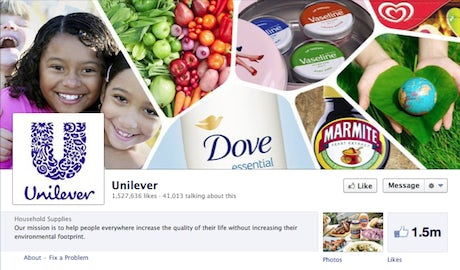Unilever plans 12% cut in marketing headcount to slash costs
Unilever is planning to cut the number of marketers it employs by 12 per cent globally, about 840 jobs, as part of a company-wide efficiency drive aimed at slashing costs across the business.

Presenting at the FMCG giant’s investor day in London yesterday (6 December) chief marketing officer Keith Weed outlined plans to make marketing “simpler, leaner, more agile”.
Presentation slides from the day posted on the company’s show plans to reduce the number of “small projects with incremental turnover of less than €3m” and streamlining marketing processes to six areas – marketing insight, category and brand strategy, brand marketing plans, innovation/renovation, communications and in-market brand management.
There was an also emphasis on reducing “non-working” media such as the fees paid to agencies as well as the cost of producing advertising. Emphasis was also given to advancements the company has made in digital marketing – which now accounts for 15 per cent of its spend and is significantly cheaper than traditional media channels such as TV.
A spokeswoman for Unilever told Marketing Week headcount would reduce from about 7,000 but declined to say over what period of time and where. Ad Age reports jobs will go in regional centres in developed markets such as the US. The spokeswoman adds: ”This is part of a wider project aimed at introducing new ways of working that will increase collaboration and cooperation, simplify processes, and leverage the creative expertise of our teams across the world.”
In a separate presentation, chief finance officer Jean-Marc Huët said the company would reduce the number of SKUs (stock keeping units – sizes, flavours and product varieties) by 30 per cent by the end of 2014. The company recently signaled increased investment in new product development.
The Flora and Dove maker has been under pressure from investors this year because of a slowdown in sales from emerging markets and a decline in sales from developed markets.
In its latest fiscal quarter, sales from emerging markets, where the company generates more than half of sales from, grew 5.9 per cent – markedly less than the 10.3 per cent growth registered in the first-half. Sales from developed markets, which include the UK, “remained flat to down”.






